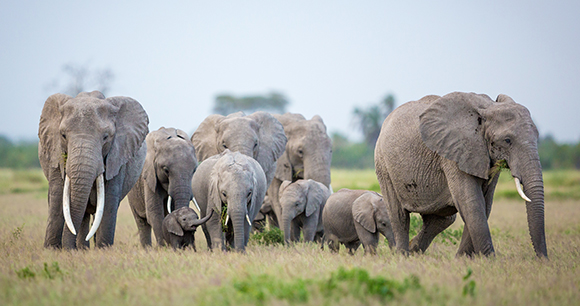In July, Caroline Griffin, vice chair of AWI’s board of directors, and Robin Jacobsohn, AWI’s general counsel, participated in the inaugural International Animal Law Commission Seminar, hosted by the International Association of Lawyers. This two-day event brought together lawyers from around the world and from every discipline to chart a common path forward for international animal law. Participants discussed animal law’s impacts on various sectors and how application of a business model to law and policy initiatives could help achieve measurable progress.

Caroline moderated a panel with Robin, Prof. David Favre of Michigan State University College of Law, and Jim Karani, general counsel for Lawyers for Animal Protection in Africa, addressing the challenges of combatting wildlife trafficking. Wildlife poaching has had catastrophic effects on numerous species, such as African elephants targeted for their tusks and several rhino species targeted for their horns. The panel discussed the need for more global, collaborative efforts that seek solutions based on the United Nations’ “One Health” approach that recognizes the interconnectedness of harms to the environment, animals, and humans.
As to legal international trade, the Convention on International Trade in Endangered Species of Wild Fauna and Flora (CITES) places restrictions on trade of vulnerable species, with mixed success. One such species, the long-tailed macaque, is designated as “endangered” on the IUCN Red List in light of growing demand by the biotech industry for these animals for use as pharmaceutical test subjects. Wild populations have dropped by an alarming 80 percent over the past 35 years, and wild macaques have allegedly been laundered as “captive born” to evade trade restrictions. Greater protections are clearly needed.
Josphat Ngonyo, founder of Africa Network for Animal Welfare, thanked AWI in his remarks for collaborations that have produced real and effective change. Overall, the seminar underscored the need for more unifying efforts to create a more comprehensive and compassionate system of protections.